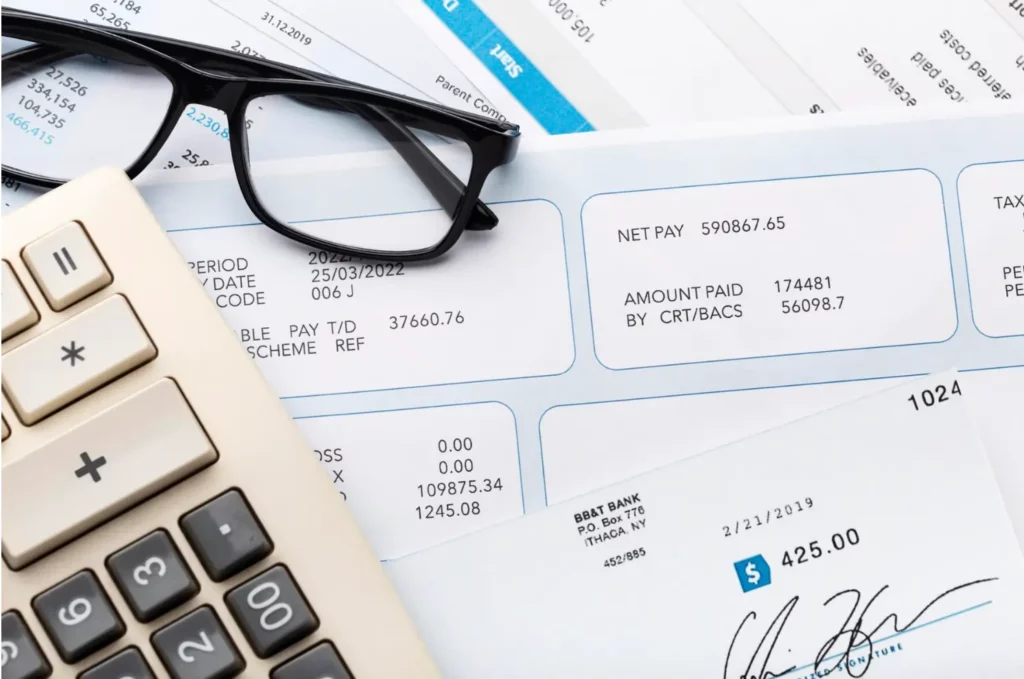We are in the season when every company focuses on completing its federal tax obligations. While the deadline is coming, we want to clarify some essential forms required to be filled out for federal tax returns. If you would like to know more about the federal tax filing process, we also recommend you visit our following blog posts, for further details:
Federal Taxation – Ultimate Guide
Federal Income Tax in Six Questions
1120, 1040, and 7004 are the numbers you will definitely hear during the federal tax period. Even though CPAs guide us through the filing processes, we would like to summarize the most common forms since it is valuable for us that you know what you are signing on and for what reason.
What is Form 1120?
Form 1120 is a form for U.S. Corporation Income Tax Return. The form aims to declare the income, gains, losses, deductions, and credits of a corporation so that the corporation’s income tax liability can be figured out by the Internal Revenue Service (IRS). [1]
Who Must Fill Out Form 1120?
Even though you do not have any taxable income, all domestic corporations, including corporations in bankruptcy, must file Form 1120. The list below explains the type of Form 1120 you need to fill in, based on the business lines you conduct. [2]
| 1120 – C | Subchapter T cooperative association (including a farmer’s cooperative) |
| 1120 – IC – DISC | Interest charge domestic international sales corporation |
| 1120 – F | Foreign corporation |
| 1120 – FSC | Foreign sales corporation |
| 1120 – H | Condominium management, residential real estate management |
| 1120 – L | Life insurance company |
| 1120 – ND | Fund set up to pay for nuclear decommissioning costs |
| 1120 – PC | Property and casualty insurance company |
| 1120 – POL | Political organization |
| 1120 – REIT | Real estate investment trust |
| 1120 – RIC | Regulated investment company |
| 1120 – S | S corporation |
| 1120 – SF | Settlement fund |
Resource: 2021 IRS’ Instructions for Form 1120
It is a necessary and inevitable form that any cooperation must file under the federal tax legislation.
What is the Deadline for Form 1120?
The deadline for filing Form 1120 depends on the company’s financial year-end. The due date of corporations’ tax returns is on the 15th day of the fourth month, following the financial year-end. For instance, if a company’s fiscal year-end date is December 31, the company must file documents and pay taxes until April 15.
However, it is important to note that if a corporation’s fiscal tax year ends on June 30, the company must file the document until the 15th day of the 9th month. [3]
What Happens If You File Your Tax Return Late?
There are two separate penalties you may deal with in case of filing your tax return late:
- Penalty for late filing of return
- Penalty for late payment of tax
When you don’t file your federal tax return on time, the penalty starts with 5% of the tax you did not file on time, and may increase up to 25% of the accrued tax at the end of 5 months. When you are late for filing a return more than 60 days, there are two options of which you will pay the smallest one: (i) accrued tax or (ii) $435.
Besides the foregoing, when you don’t pay your tax on time, the penalty starts with 5% of the tax you did not pay on time and may increase up to 25% of the tax at the end of 5 months. However, when you neither file nor pay your due taxes, then late filing and late payment penalties will not be accrued simultaneously, and you will only be obligated to pay monthly 5% of the tax in total. [4]
Also, it is worth to highlight that various interests may also accrue over the penalties. In other words, based on the type of penalty, you may also be obligated to pay several interests, which will increase until you pay all your balance. [5]
What is Form 1040?
Form 1040 is one of the most common forms in the U.S. federal taxation system. With this form, you can report your income, expenses, and credits. In other words, Form 1040 is to report your gross income, which is the amount of money you made over the past year, and how much of that sum can be taxed once tax credits and deductions are taken into consideration.
In the past, the IRS published 1040EZ and 1040A forms; however, these forms are currently unavailable.
Who Must Fill in Form 1040?
- Individuals who have a self-employment income of $400 or more
- Individuals who receive income as:
- Partner in a partnership
- Shareholder in an S corporation
- The beneficiary of an estate or trust
Types of Form 1040
- 1040-SR: If you and/or your spouse are over 65 years or older, you must file Form 1040-SR, instead of the standard Form 1040 during federal tax season.
- 1040-NR: Clemta’s most clients should file this form during federal tax season. Non-resident U.S. aliens who are required to file an income tax return should use Form 1040-NR. Don’t worry, Clemta will take care of your tax return!
- 1040-X: Taxpayers who need to amend or add something to their previous filing, should use this form during federal tax season.
What Happens If You File Your Tax Return Late?
The penalty for not filing taxes usually is 5% of the tax you owe for each month or part of a month your return is late. The maximum penalty for failure to file is 25%.
You might not owe the penalty if you have a reasonable explanation for filing late. You can attach a statement to your return explaining your reason for such delay.
What is Form 7004?
Form 7004 is an extension request to file business income tax, information, and returns. When you file Form 7004 before the due date of your federal filings, 6 months extension is automatically granted by the IRS.
On the other hand, it is important to emphasize that the IRS can terminate your extension period by mailing a notice of the termination. The IRS sends the notice only if it disapproves of your extension request. [6] When your Form 7004 is approved, then IRS does not send any confirmation about that, so no worries!
————————————————————————————————————————————————————————————–
References
[1] 2021 Instructions for Form 1120, https://www.irs.gov/pub/irs-pdf/i1120.pdf
[2] 2021 Instructions for Form 1120, https://www.irs.gov/pub/irs-pdf/i1120.pdf
[3] Instructions for Form 1120 (2021), https://www.irs.gov/instructions/i1120#en_US_2021_publink11455td0e1230
[4] Failure to File Penalty, https://www.irs.gov/payments/failure-to-file-penalty
[5] Interest on Underpayments and Overpayments,
https://www.irs.gov/payments/interest-on-underpayments-and-overpayments
About Form 1040, U.S. Individual Income Tax Return, https://www.irs.gov/forms-pubs/about-form-1040
[6] Instruction for Form 7004, https://www.irs.gov/instructions/i7004







